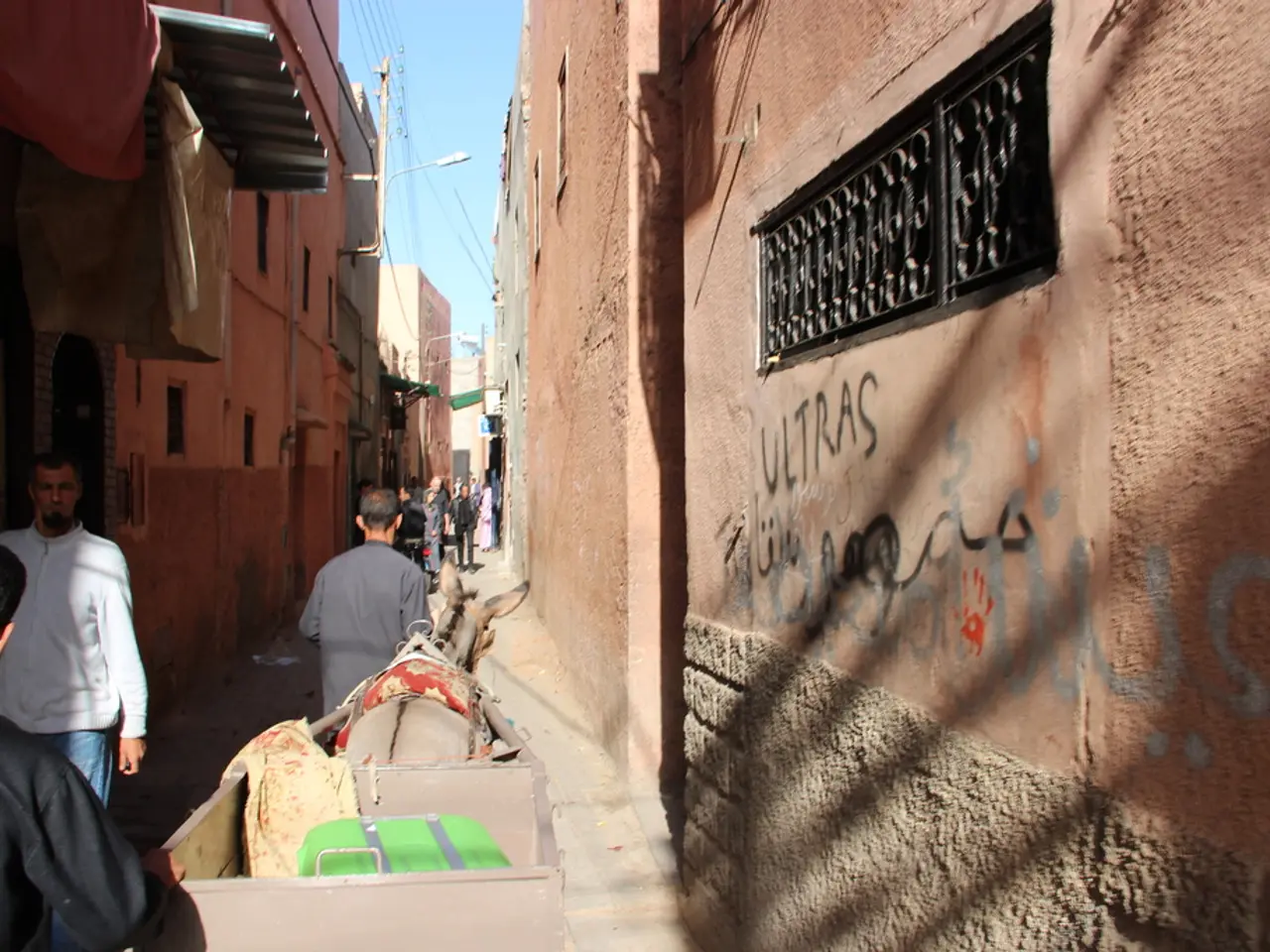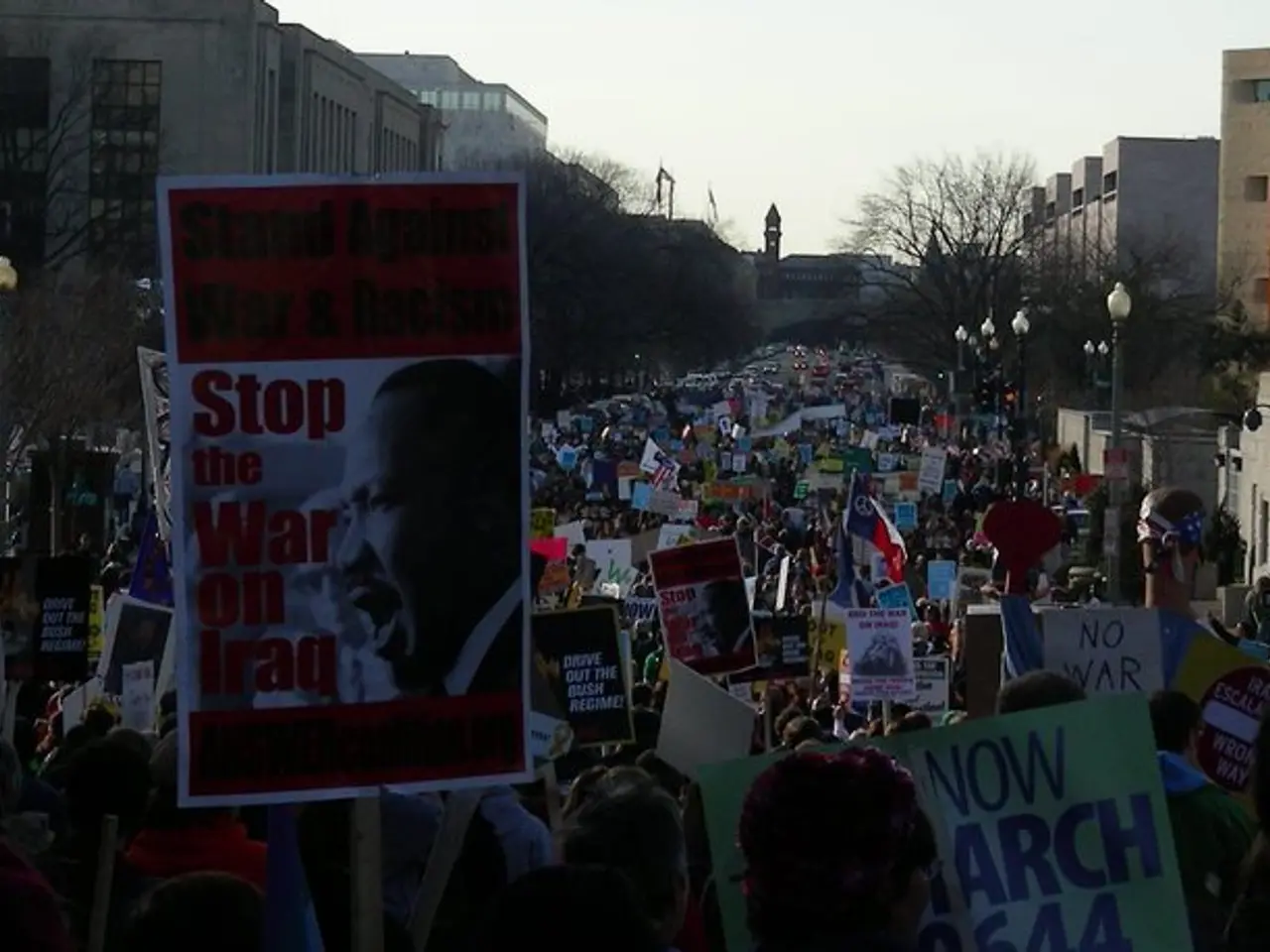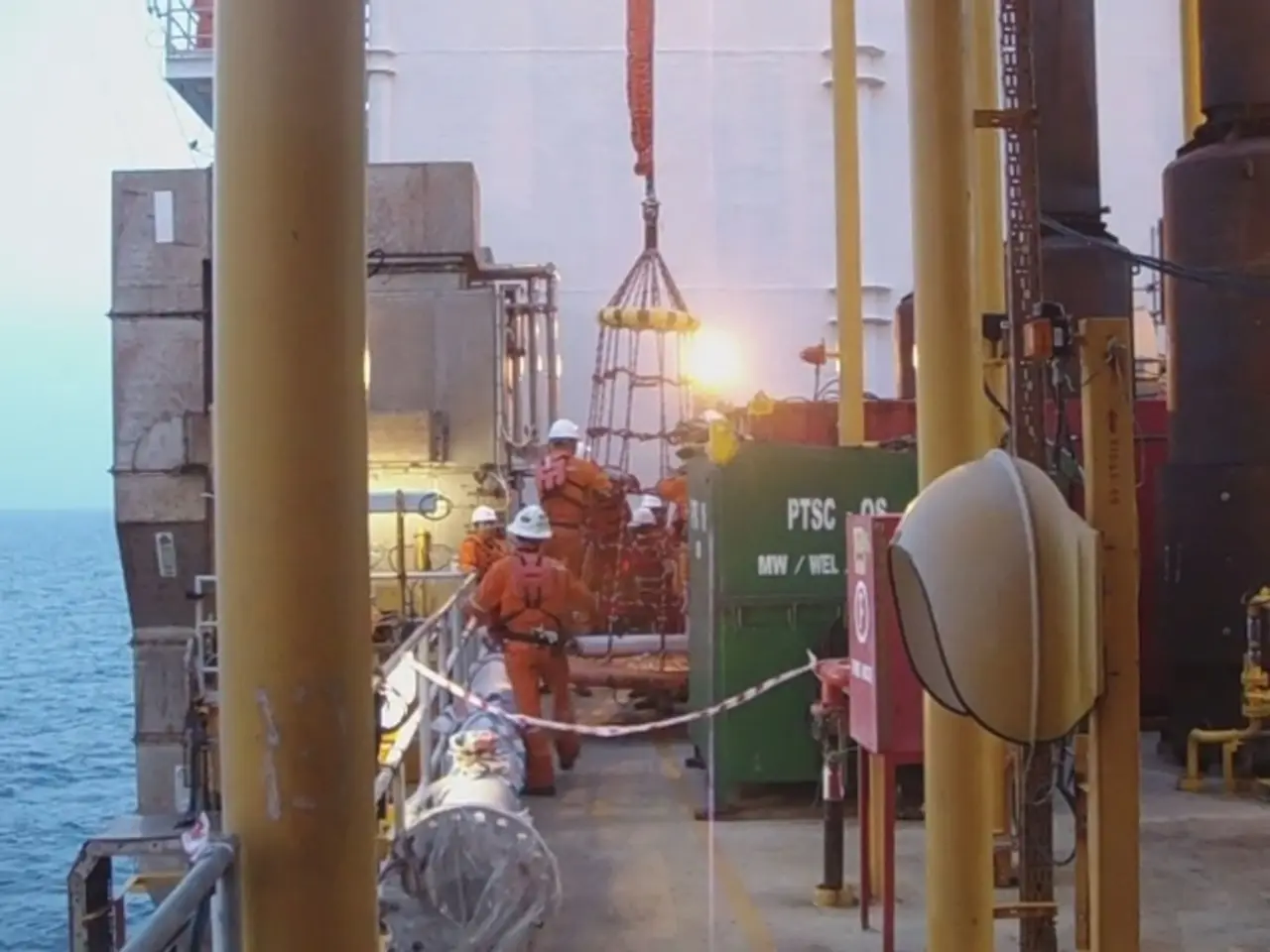Criticism of Israel's Gaza Development Agenda on the Global Stage
In the ongoing conflict between Israel and the Palestinian territories, the international community has expressed deep concern and criticism over Israel's plans to capture Gaza City.
The United Nations (UN) has strongly opposed the proposed operation, warning of catastrophic humanitarian displacement and calling for a halt to military escalations. UN High Commissioner for Human Rights Volker Türk has demanded an immediate cessation of the complete military takeover, citing International Court of Justice rulings supporting Palestinian self-determination.
The UN Security Council has called the potential escalation a risk that could ignite “another horrific chapter” in the conflict. European Union (EU) leaders, including Commission President Ursula von der Leyen and Council President António Costa, have urged the Israeli government to reconsider its decision.
Germany, as part of the international community, has joined voices cautioning against Israel’s plan, framing the military operation as potentially devastating for civilians and destabilizing regionally. Dutch Foreign Minister Caspar Veldkamp went so far as to say that "Netanyahu's government is losing Europe - completely."
The international stance reflects urgent concerns about escalating violence’s impact on civilians, legality under international law, and the imperative to safeguard humanitarian access amid ongoing hostilities.
Israel, led by Prime Minister Benjamin Netanyahu, justifies the operation as necessary to defeat Hamas, disarm militants, free hostages, and establish Israeli security control and a civilian administration not linked to Hamas or the Palestinian Authority (PA). The Israeli Security Cabinet has approved an expansion of military operations in the Gaza Strip and the capture of the city of Gaza.
However, the Palestinian Authority (PA) should play a central role in any future government in the Gaza Strip, according to a joint statement. The five countries called for the international community to work towards a lasting ceasefire and humanitarian aid for the population in the Gaza Strip, and demanded the immediate release of hostages from the Islamic Hamas.
The only way to achieve lasting peace between Israelis and Palestinians, according to the joint statement, is through a two-state solution. This international stance underscores the need for diplomatic solutions and respect for Palestinian self-determination.
In addition to the UN, Germany, Britain, Italy, New Zealand, and Australia have rejected Israel's plans to capture the city of Gaza, citing concerns about the humanitarian situation, hostage safety, potential mass civilian displacement, and potential violations of humanitarian international law. Qatar and the United Arab Emirates have also condemned Israel's plans, further emphasizing the global opposition to the proposed military action.
As the situation continues to unfold, the international community will undoubtedly remain vigilant, advocating for peace, humanitarian aid, and respect for international law in the ongoing conflict between Israel and the Palestinian territories.
The General News section may report on the international community's response to the war-and-conflicts between Israel and Palestinian territories, including the condemnation of Israel's plans to capture Gaza City by the United Nations (UN), EU leaders, and other nations like Germany, Britain, Italy, New Zealand, Australia, Qatar, and the United Arab Emirates. Politics would involve the diplomatic negotiations and solutions, such as the joint statement's call for a two-state solution and the international community's urging for a lasting ceasefire and humanitarian aid for the Gaza Strip.






